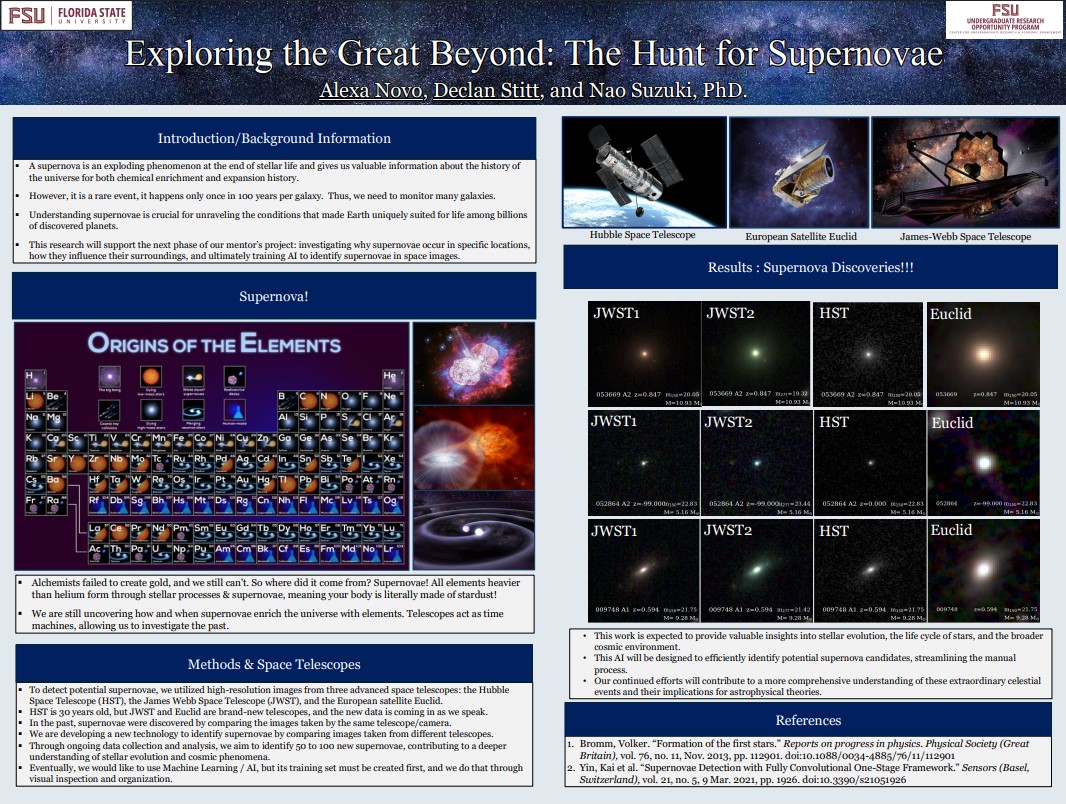Research Symposium
25th annual Undergraduate Research Symposium, April 1, 2025
Alexa Novo Poster Session 1: 9:30 am - 10:30 am/ Poster #279

BIO
Hi, my name is Alexa Novo and I am a sophomore from Miami, Florida, majoring in Behavioral Neuroscience on the pre-med track. I'm passionate about medicine and hope to become a trauma surgeon, though my interest in neuroscience has me considering a path in neurosurgery as well. I enjoy researching STEM-related topics, but I also like to venture beyond my major, as it challenges me to explore new perspectives. Outside of school, I love playing volleyball and relaxing at the beach!
Exploring the Great Beyond: The Hunt for Supernovae
Authors: Alexa Novo, Nao SuzukiStudent Major: Behavioral Neuroscience
Mentor: Nao Suzuki
Mentor's Department: Physics Mentor's College: College of Arts and Sciences Co-Presenters: Declan Stitt
Abstract
Cosmology is the field of study that combines physics and astronomy to better understand the universe that surrounds us. Our research focuses on supernovae– cataclysmic stellar explosions that serve as cosmic laboratories for studying fundamental physics, the expansion of the universe, and the formation of heavy elements essential for life. Although supernovae help measure cosmic distances and reveal extreme space conditions, they are difficult to detect, making their study both important and challenging. To detect them, we utilize the James Webb Space Telescope (JWST), the Hubble Space Telescope, and the European Satellite Euclid to capture high-resolution images of our galaxy. These images are processed using SAOImage, a software tool that allows us to mark and identify potential supernovae by comparing new observations to old data, ensuring novel discoveries. To improve accuracy, those with coding experience write codes into a different system to account for previously identified supernovae. Our goal is to train AI to predict where and when supernovae might appear, which could also lead to the discovery of other celestial objects. With continuous data collection, we anticipate identifying 50-100 new supernovae, advancing our understanding of stellar evolution and cosmic phenomena.
Keywords: cosmology, supernova, astrophysics, space

